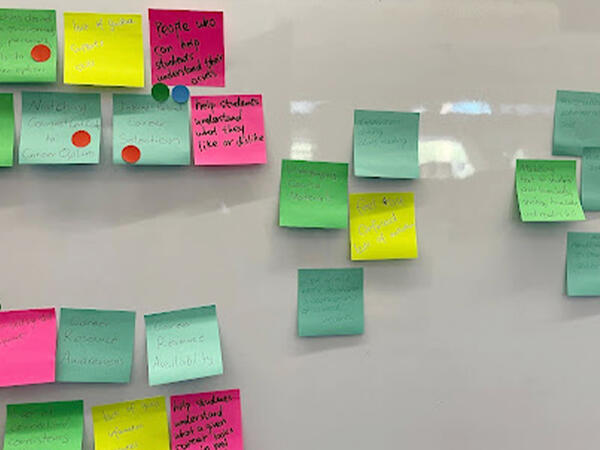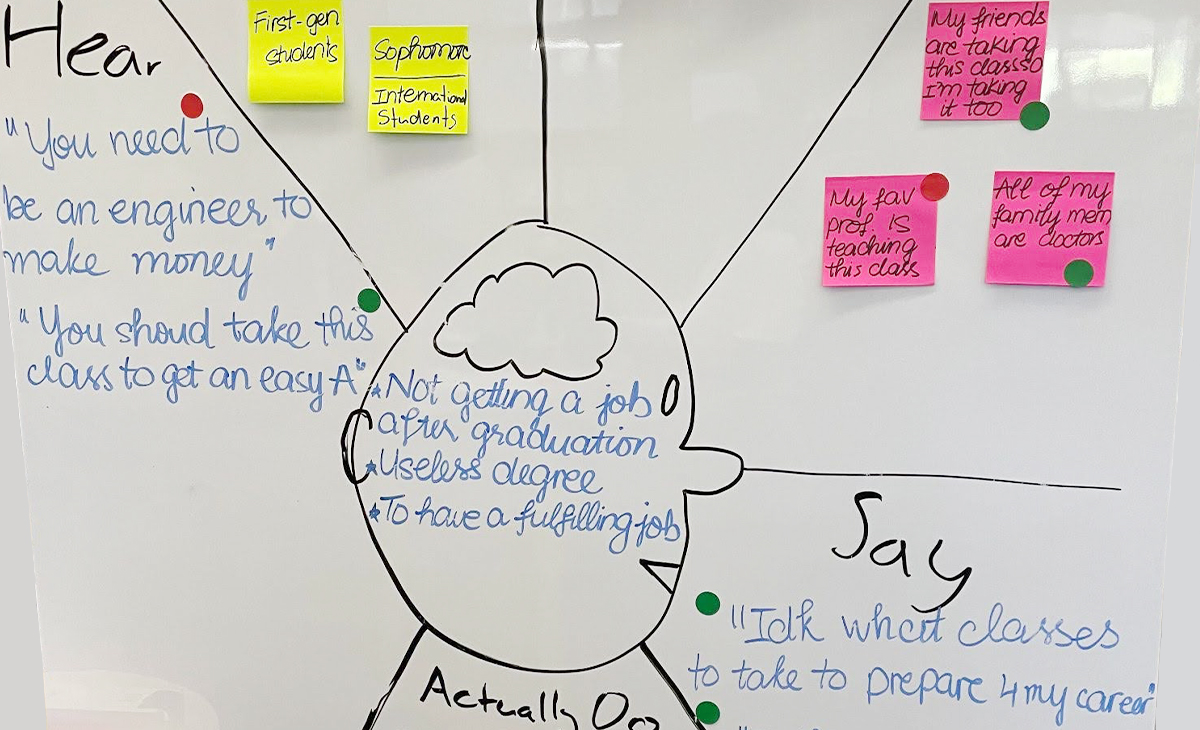
Devils Pathway (1st place winner, hackathon)
Siyuan "Mei Mei" Li (Graduate - Human Systems Engineering), Zeinab Serhan (Graduate - Human Systems Engineering), Linh Huynh (Graduate - Psychology PhD), Katerina Christhilf (Graduate - Psychology PhD)
Whats the problem?
Many undergraduates enter college without clear goals and plans. As a result, some students might enroll in irrelevant courses and pursue degrees that don't align with their future careers. The feeling of uncertainty can take a toll, academically and beyond. With the hopes of helping students find their path, our team began to think about ways we could support students in their career goals -- especially if it means figuring out what that goal is.
But first...

How did our team get here?
We chose specifically to provide career support over other options, like increasing student engagement and improving reading comprehension, because of its alignment with Principled Innovation. Our team wanted to promote inclusivity, as students with less privilege may not be aware of different career options. We also aimed to instill reflection by encouraging students to consider their academic choices and future goals.
At first, our team chose to focus on ASU undergraduate students, including international students and first-generation students.
As we developed our solution, however, we realized that we wanted our idea to be a general tool for anyone struggling to discover career choices that closely aligns with them.

Defining the problem
for a better solution
With this in mind, our team developed a GPT-powered career preparation tool. It assesses student personality types and work values through a narrative-based questionnaire, factoring in majors, interests, RIASEC personality types, skills, and work values. The tool provides information about potential career paths, as well as ASU courses, minors, and certificates that help students prepare for these recommended careers. This tool enables students to make informed decisions about their career path, fostering academic success by empowering students to take ownership of their educational and career paths.
The prototype
This project consists of a frontend application built with Angular and styled using the ASU Library Bootstrap theme, and a backend application powered by Flask in Python. Our product design aims to foster a harmonious Human-AI collaboration, treating AI as a partner in enhancing students' capabilities while maintaining their control over their career goals. Anchored in the Principled Innovation, with a focus on inclusivity and reflection, our product's mission is to enhance human agency in the use of AI tools and to promote the inclusive utilization of AI technologies. It does so by offering students three distinct agentic experiences, empowering them to make informed and responsible decisions regarding our system's recommendations. These experiences are deeply rooted in the theory of human agency, which comprises three key concepts: forethought, self-regulation, and self-reflection. Our design thoughtfully integrates these theoretical concepts into the fabric of the product elements.

Many undergraduates enter college without clear goals and plans. As a result, some students might enroll in irrelevant courses and pursue degrees that don't align with their future careers. The feeling of uncertainty can take a toll, academically and beyond. With the hopes of helping students find their path, our team began to think about ways we could support students in their career goals -- especially if it means figuring out what that goal is.